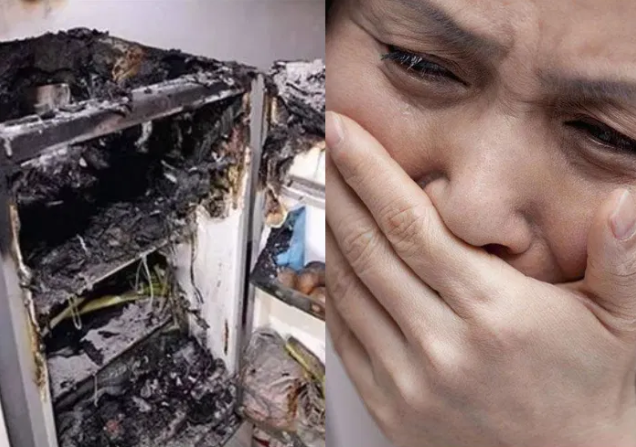People often say that danger is impossible to prevent completely,
and indeed, we encounter potential threats in our daily lives, often without realizing it. To protect ourselves and our loved ones—especially children—we must be mindful of the smallest details in our routines. Neglecting simple precautions can lead to irreversible consequences, and unfortunately, one heartbreaking incident in Shanghai is a painful reminder of that reality.
A 5-year-old boy was seriously injured after a soft drink can exploded in his hands. In the sweltering summer heat of Shanghai, the boy decided to put his favorite carbonated drink in the freezer, hoping to cool it down quickly. But when he happily took it out and opened the can, a sudden explosion occurred. The pressurized liquid burst out with force, breaking the can and causing facial injuries that required 38 stitches. This shocking moment turned a simple act into a traumatic event for the entire family.
Doctors warn that this isn’t a rare case—more and more patients are being hospitalized after similar accidents involving soft drinks stored in freezers. When carbonated beverages are placed in extremely cold environments, the liquid expands and increases internal pressure due to the release of CO2. This can cause cans to burst suddenly, either while still inside the freezer or as soon as they are opened. If you want your drink chilled quickly, it’s safer to refrigerate it or let it sit in ice water for a few minutes instead.
In fact, there are three things you should never store in the freezer: carbonated drinks, alcoholic beverages, and dry ice. All three can lead to dangerous pressure build-up or even explosions. Alcohol, especially in sealed containers, becomes volatile in freezing temperatures and poses a serious fire risk if exposed to sparks. Meanwhile, dry ice—solid carbon dioxide—expands up to 800 times its volume in enclosed cold spaces, making it a severe hazard. To protect your home and loved ones, always read product warnings, avoid putting these items in the freezer, and teach your children the importance of safe storage.
